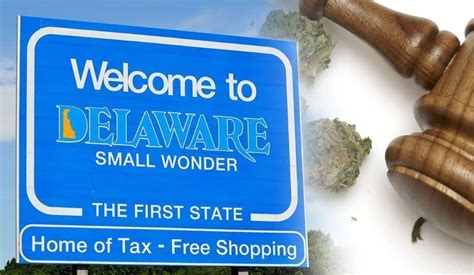Delaware has taken significant steps in reforming its marijuana laws with the introduction of House Bill 1 and House Bill 2. Governor John Carney, in a notable move, announced that he will allow these bills to become law without his signature, signifying a shift in the state’s approach to marijuana. The Delaware Marijuana Control Act, encapsulated in these bills, aims to decriminalize marijuana possession and establish a regulated industry for recreational marijuana sales.

The Delaware Marijuana Control Act, detailed in House Bill 1 and House Bill 2, introduces comprehensive changes. House Bill 1 legalizes the possession of small amounts of marijuana for personal use, while House Bill 2 regulates the legal industry for growing and selling cannabis. This dual approach aims to control the recreational use of marijuana in a manner similar to alcohol, providing a framework for production, manufacture, and sale within a legal industry.
Key features of the Act include the imposition of a 15% tax on the retail sale of marijuana products, as stated in Section 1382 of 84 Del. Laws c. 24. Notably, this tax does not apply to medical marijuana products. The Act also addresses the age restrictions, clearly stating that the transfer or use of marijuana by individuals under 21 is prohibited, aligning with the state’s approach to alcohol consumption.
Further regulations under the Act, outlined in Section 1331 of 84 Del. Laws c. 24, mandate the Commissioner to adopt necessary regulations for implementation. These regulations are designed to ensure the practical operation of marijuana establishments without unreasonable constraints.
The Act’s implications extend beyond Delaware, as neighboring states like Maryland and New Jersey have also embarked on similar paths. The Maryland Cannabis Administration provides FAQs about adult-use cannabis, and New Jersey has introduced the Cannabis Regulatory Enforcement Assistance and Marketplace Modernization (CREAMM) Act, both reflecting a regional trend towards legalization and regulation.
Delaware’s move towards a regulated marijuana industry represents a significant shift in policy, aiming to create a safe and controlled environment for recreational marijuana use, while generating new revenue streams for the state.